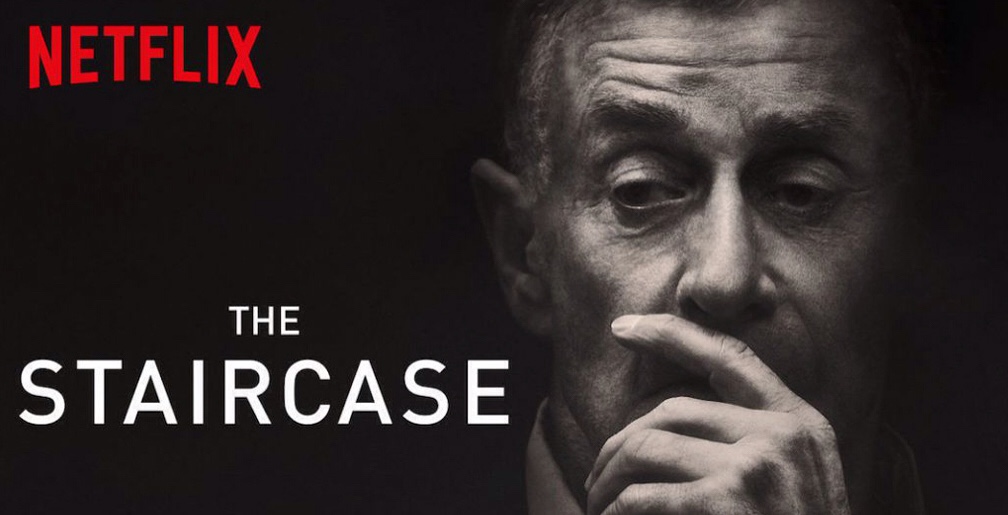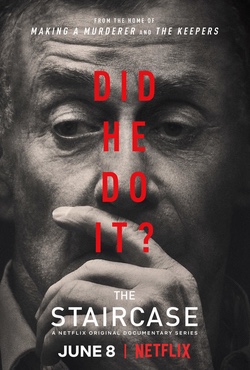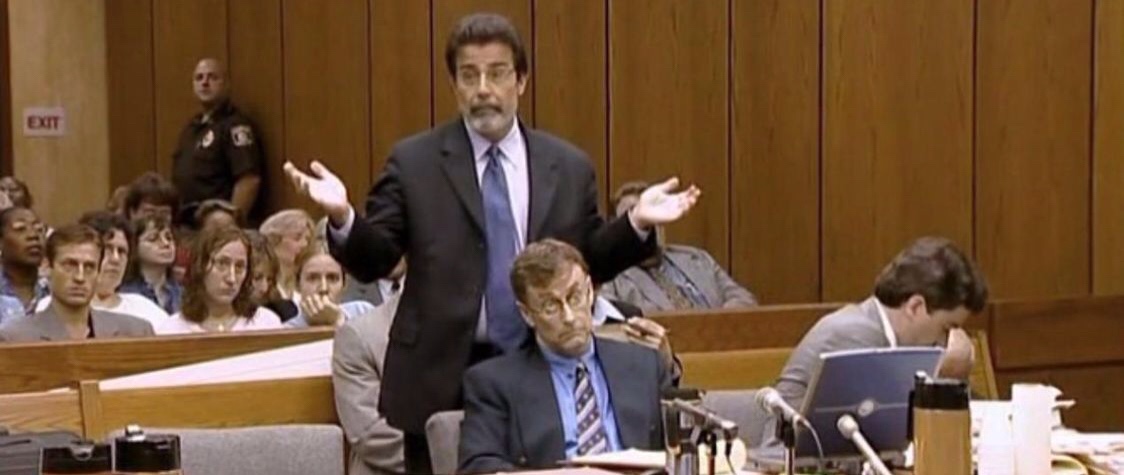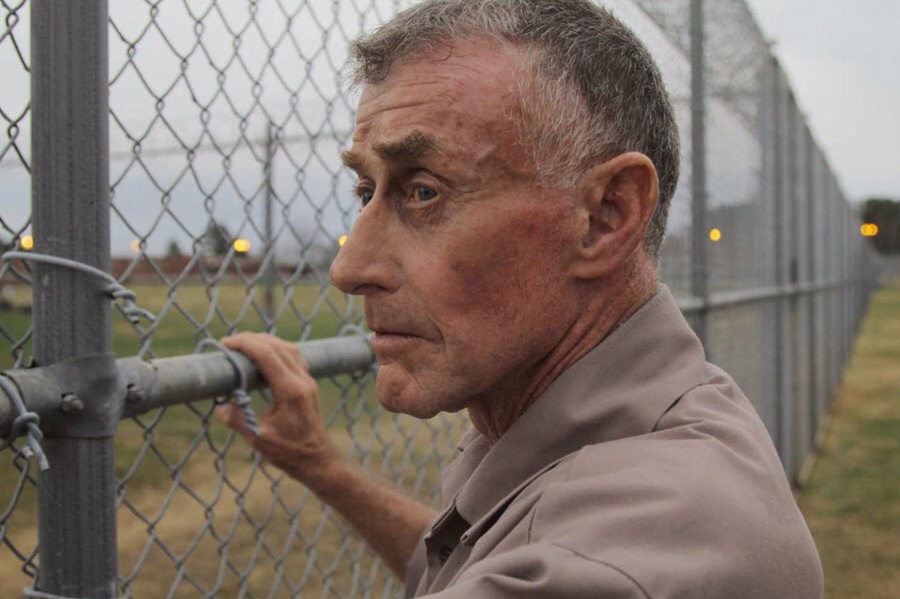
 The Staircase
The Staircase
Director: Jean-Xavier de Lestrade
Writer: Jean-Xavier de Lestrade
A review by Brooke Ali
Before Serial, before Making a Murderer, there was The Staircase. On December 9, 2001, Kathleen Peterson, wife of bestselling author Michael Peterson, was found dead at the bottom of the stairs in her own home. This event started a bizarre high profile trial that was captured by filmmaker Jean-Xavier de Lestrade. This was Lestrade’s first and only foray into documentary film-making. The material has kept the docu-series coming back for 15 years.
The series was originally produced in 8 episodes covering the trial and ending in Peterson’s conviction. And that’s all that would have been the end of it. If not for the discovery that blood spatter analysis expert, SBI Duane Deaver, had hidden evidence in another trial that had resulted in a conviction. When that conviction was overturned, it opened the floodgates for other people who had been convicted on Deaver’s testimony to challenge the ruling. The film crew came back to make a sequel in 2013, The Staircase II after Peterson had been released and spent several years on house arrest. As a result, Netflix picked up the series. The Staircase II is split into two episodes, and three more episodes were made to bring the matter, at least as far as the courts are concerned, to a close. But did he do it, or was Kathleen’s death an accident?

The show is replete with a cast of characters out of a novel. The angry sister of the victim, the airy ex-wife, the siblings rent apart by disagreement over his guilt, the hardnose detectives, and showman-like lawyers. The series is unabashed in its bias for the defense. We get a few short scenes of the prosecution team in their office building the case. The rest of the time they’re shown giving testimony that will be later disputed by David Rudolph and the defense team. The experts brought in by both sides will be instantly recognizable to fans of true crime television and documentaries: Dr Werner Spitz, Dr Henry Lee, the now infamous Deaver.
There is a definite stylistic shift between the original series and the 5 episodes that followed. The trial episodes are much more dynamic. There are crime scenes walkthroughs, impassioned courtroom speeches, international travel, and even an exhumation to film. De Lestrade seems to really like filming news anchors practicing before going live. It’s everything you’d expect from a true crime documentary.

The subsequent episodes are much lower in energy. Peterson has aged considerably after eight years in jail. It’s hard to make suppression motions, and plea deals visually interesting. We’ve moved away from the excitement of “whodunit” and firmly into the formality of lawyers with paperwork. The film does its best to keep things lively. They add more family photos, scenes of Peterson playing with his grandkids, and artfully framed shots of Peterson sitting forlornly in jail. These are the episodes where the staging of the shots becomes much more obvious. This takes away from the feeling of realism as a true crime series.
Peterson, himself, seems constantly aware that he’s being filmed. This makes it hard to see any scene he is in as candid. This is the case throughout all 13 episodes of the series. Peterson always seems “on.” In the final moments of the documentary, we are treated to a short scene of 76-year-old Peterson trying to get his new Amazon Alexa to play his “favourite song,” Everybody Knows by Leonard Cohen. A song that seems tailor-made to finish off a documentary about a man who maintains his innocence; “everybody knows the war is over. Everybody knows the good guys lost.”
The only moment with any real intensity in any of the last five episodes is when Kathleen’s sister, Candace Zamperini. She gives her victim impact statement in court. In it, she rails not only against Peterson, Rudolph, and the defense team. Also against the “French film company who wanted to make a psuedo-documentary about my sister’s murder.” Of course, the production of this series has not been without scandal in its own right. De Lestrade confirmed this past May that the series’s editor, Sophie Brunet, was having an affair with Peterson during production. The affair began shortly after the start of shooting and ended as recently as May 2017.
Verdict: Watch it! The Staircase is one of those documentaries that have a huge place in the true crime fan community. In the first episode of the podcast, My Favourite Murder hosts Karen and Georgia reminisce about meeting at a party and bonding over this very documentary. It works as a contrast to the flashier film style being used for the current crop of true crime docs like Making a Murderer and Evil Genius. Even though it drags in parts, it provides an interesting look into this famous case and the flawed way it was handled on all sides.



